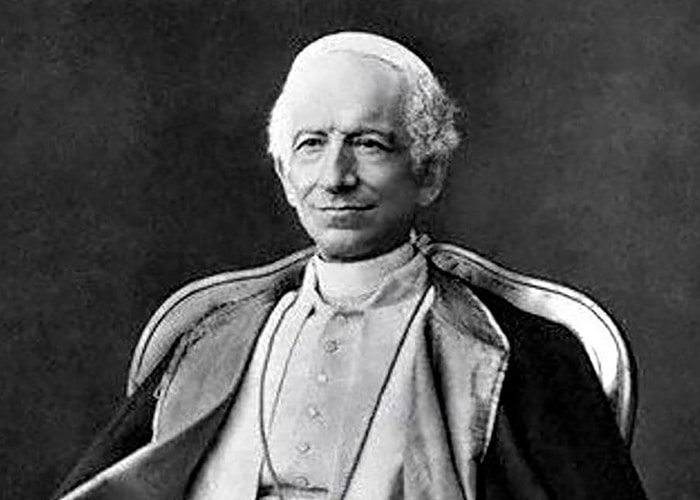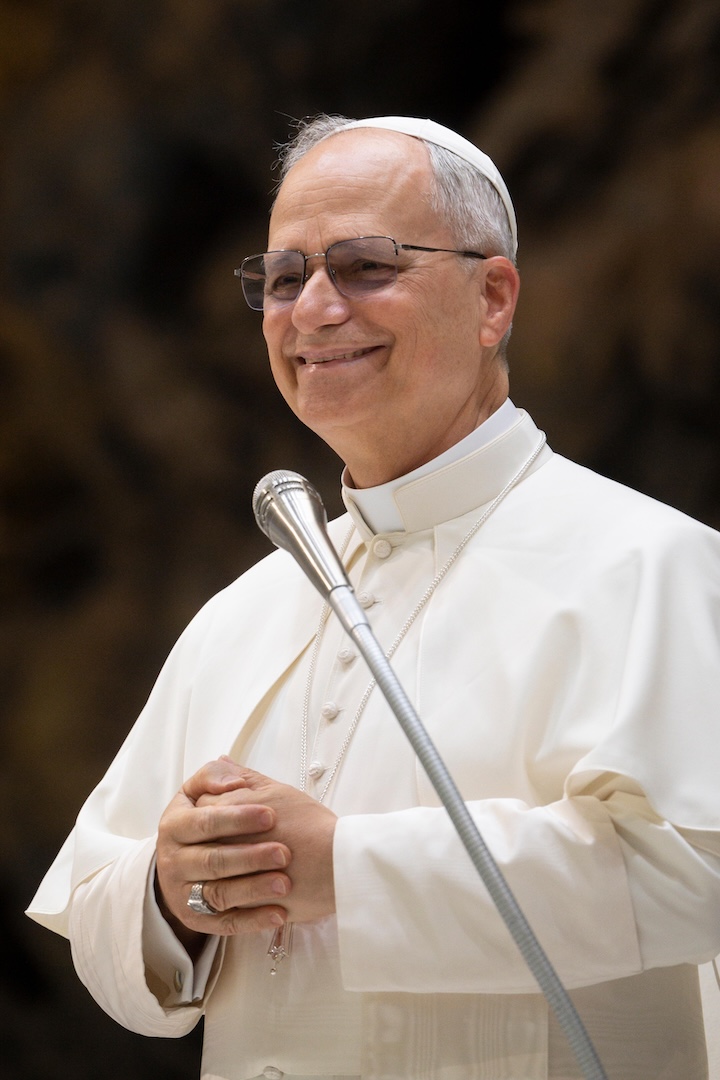From FCAPP President, Paulo Garonna
A warm welcome to Pope Leo XIV from the Centesimus Annus Pro Pontifice Foundation, its members, their families and their stakeholders.
A Pope who knows well the whole world, Old and New, North and South, and the situation of the Church in this world.
With His strong background in hard and social sciences, His orientation to missionary activities and pastoral care, His experience in interreligious dialogue, His many languages and canon law knowledge, Pope Leo XIV is in the best position to continue and further develop the Magisterium of Pope Francis, with Whom He worked closely. As an Augustinian, Pope Leo will be committed to the pursuit of truth through learning and love through engagement in the community.
His chosen name puts Him in a particularly close relationship with the Social Doctrine of the Church and our Foundation’s activities at a time when the Church is called upon to provide hope and moral leadership in a world of divisions, conflicts and disorder.
Let us pray for Him and with Him, asking Our Lady of Good Counsel to guide and support us acting at His service (Pro Pontifice).
Paolo Garonna, President, FCAPP
“There is a growing demand for the Church’s social doctrine, to which we need to respond.”
The Name “Leo”

His choice of the name, “Leo XIV”, is very exciting for CAPP-USA, as it demonstrates a love of the previous Leo, Leo XIII, who ushered Catholic social teaching into the modern age with the ever new encyclical, Rerum Novarum.
On May 10, 2025, in an address to the college of cardinals, he said, “Sensing myself called to continue in this same path, I chose to take the name Leo XIV. There are different reasons for this, but mainly because Pope Leo XIII in his historic Encyclical Rerum Novarum addressed the social question in the context of the first great industrial revolution. In our own day, the Church offers to everyone the treasury of her social teaching in response to another industrial revolution and to developments in the field of artificial intelligence that pose new challenges for the defence of human dignity, justice and labour.” (Pope Leo XIV)
We encourage you to learn about this great encyclical, and to dive deeper into Catholic social teaching. As the new Holy Father begins his Petrine ministry, we will update this page.
A New Apostolic Exhoration
Dilexi Te — His First Major Teaching
Pope Leo XIV released his first Apostolic Exhortation, Dilexi Te, on October 4th, 2025. Begun by Pope Francis in the final months of his life, and promulgated by Pope Leo XIV, it affirms that love for the poor is not optional but a path to holiness.
It challenges both individuals and institutions to confront the “structures of sin” that perpetuate poverty, inequality, and a “throwaway culture.”
The poor are not passive recipients of aid but active agents of evangelization and renewal.
Dilexi Te calls Christians to personal encounter, structural change, and solidarity, urging the Church to be a “poor Church for the poor” whose credibility is measured by concrete love, justice, and action.
The Apostolic Exhortation emerges at a critical moment—amid rapid technological change, social fragmentation, and widening inequality—when the Church’s prophetic voice on behalf of the poor is urgently needed.
The document asserts that in the poor and suffering, the Church recognizes the face of her crucified Lord, Jesus Christ, making the “option for the poor” a fundamental tenet of faith. Drawing deeply from Sacred Scripture, the Church Fathers, and the witness of the saints, Dilexi Te shows that God’s plan of salvation is marked by a special concern for the lowly, the marginalized, and the oppressed. This divine preference, embodied in the “poor Messiah,” reveals the very heart of God’s compassion for all humanity.


Dilexi Te — His First Major Teaching
Pope Leo XIV released his first Apostolic Exhortation, Dilexi Te, on October 4th, 2025. Begun by Pope Francis in the final months of his life, and promulgated by Pope Leo XIV, it affirms that love for the poor is not optional but a path to holiness.
It challenges both individuals and institutions to confront the “structures of sin” that perpetuate poverty, inequality, and a “throwaway culture.”
The poor are not passive recipients of aid but active agents of evangelization and renewal.
Dilexi Te calls Christians to personal encounter, structural change, and solidarity, urging the Church to be a “poor Church for the poor” whose credibility is measured by concrete love, justice, and action.
The Apostolic Exhortation emerges at a critical moment—amid rapid technological change, social fragmentation, and widening inequality—when the Church’s prophetic voice on behalf of the poor is urgently needed.
The document asserts that in the poor and suffering, the Church recognizes the face of her crucified Lord, Jesus Christ, making the “option for the poor” a fundamental tenet of faith. Drawing deeply from Sacred Scripture, the Church Fathers, and the witness of the saints, Dilexi Te shows that God’s plan of salvation is marked by a special concern for the lowly, the marginalized, and the oppressed. This divine preference, embodied in the “poor Messiah,” reveals the very heart of God’s compassion for all humanity.
Pope Leo XIV, Social Doctrine, and Social Issues
WHAT IS CATHOLIC SOCIAL TEACHING?
“For many of our contemporaries, the words ‘dialogue’ and ‘doctrine’ can seem incompatible. ‘Doctrine,’ on the other hand, as a serious, serene and rigorous discourse, aims to teach us primarily how to approach problems and, even more importantly, how to approach people. Consequently, a doctrine is not the same as an opinion, but is rather a common, collective and even multidisciplinary pursuit of truth.” (Address to CAPP)
ABORTION
THE COMMON GOOD
“It is the responsibility of government leaders to work to build harmonious and peaceful civil societies.” (Address to Diplomatic Corps)
“As John Paul II pointed out, peace is an indivisible good; it is either everyone’s or no one’s”. (Address to the ‘Arena of Peace’)
THE FAMILY AND MARRIAGE
“[H]armonious and peaceful civil societies…can be achieved above all by investing in the family, founded upon the stable union between a man and a woman, ‘a small but genuine society, and prior to all civil society.’” (Address to Diplomatic Corps)





















